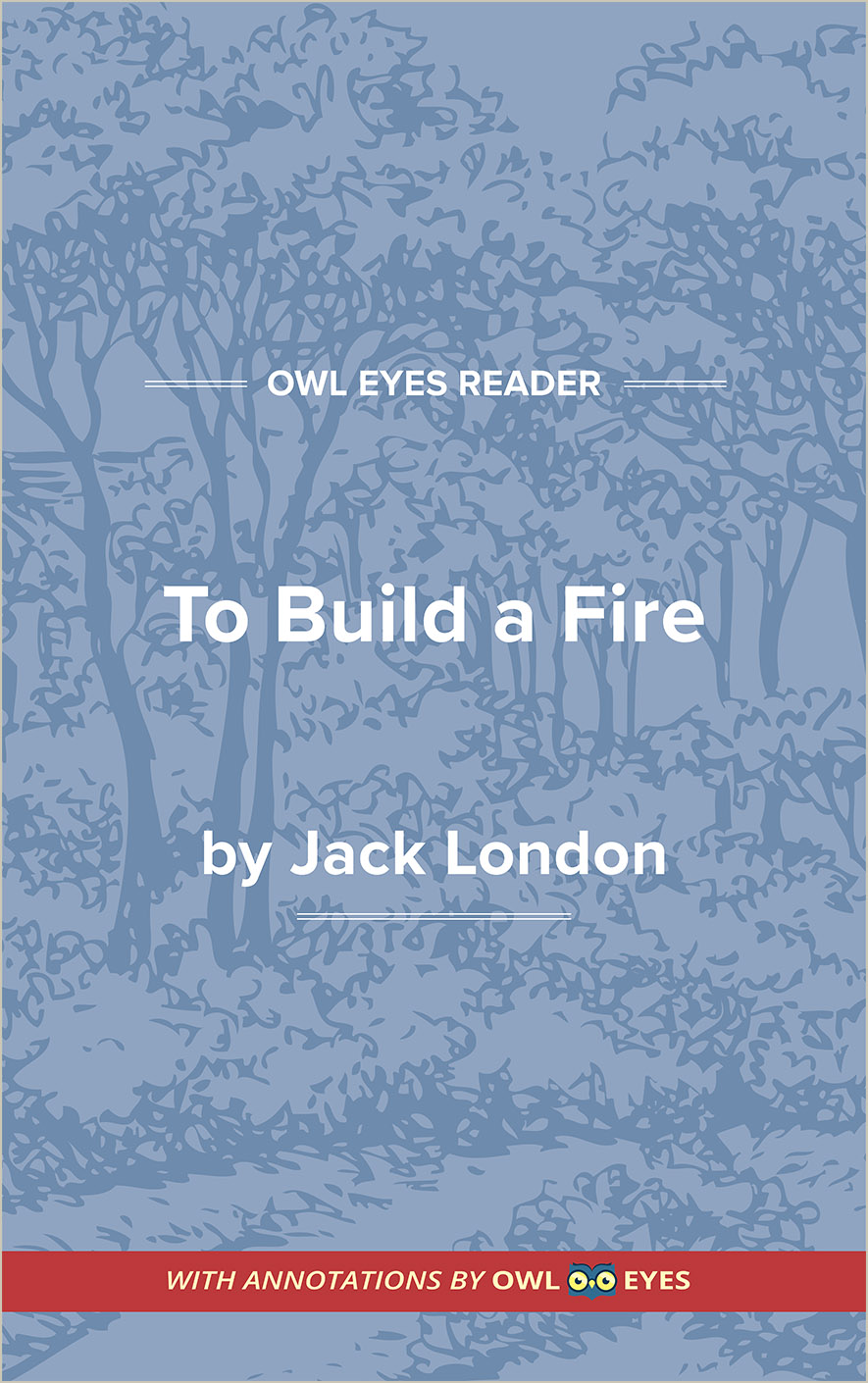Study Guide
Analysis Pages
Summary
London was not one to gloss over unpleasantness, and in “To Build a Fire” he described just how harsh the world can be to someone who disregards its laws. As the story opens, life seems benign enough. It is a still, clear day, and the unnamed protagonist has plenty of time to make the one-day walk to the camp where his friends wait. He is in fine fettle, alert and careful of his footing on the frozen riverbed. He has his dog for company. The only troubles are that it is fearfully cold—75 degrees below zero—and he is “without imagination.” From this seemingly slight situation, London crafts a tale of a universe where any step can be fatal, looking backward to the metaphysical despair of Stephen Crane and forward to the stoic code of Ernest Hemingway.
In Crane’s short story “The Open Boat” (1897), a number of survivors of a sunken ship ride on a lifeboat in heavy seas. The fact that they may drown in sight of the shore underlines to them the indifference of the cosmos to human undertakings. In London’s tale, the omnipresent cold, though ready to sweep away human life, is simply part of the universe’s thermodynamics. When the protagonist has gotten into a desperate plight, having fallen through the ice and wet his legs, the author emphasizes the larger picture: “The cold of space smote the unprotected tip of the planet, and he, being on that tip, received the full force of the blow.” The largeness of the forces involved reduce his plight to insignificance.
In the works of Hemingway, such as A Farewell to Arms (1929) and The Sun Also Rises (1926), the author prescribes that the acknowledged indifference of the larger forces of reality be met by a stoic code of honor on the part of his characters. Though London’s protagonist, foolhardy in attempting the trip alone, lacks the judgment of Hemingway’s ideal heroes, he does display admirable coolness in trying to build a fire to thaw out his legs, taking each difficulty in stride. When he finds, for example, that he can no longer work his numb fingers, he picks up wood with his two palms. Also, after an initial panic when he loses his fire, he resigns himself to death and musters whatever dignity he can, sitting down for the last time quietly.
The story is a short one (fifteen pages), and the compression works to magnify some of London’s strengths while helping to diminish some of his weaknesses. His writing was often marred by obtrusive passages, especially when discussing such charged topics as women or Anglo-Saxon superiority. In this piece, where the concentration is so tightly focused, his prose is always spare and telling. Each stroke of his pen underlines the tenuousness of life in the North or grimly describes the doomed man’s survival strategies.
London had another...
(The entire page is 724 words.)
Owl Eyes subscribers get unlimited access to our expert annotations, analyses, and study guides on your favorite texts. Master the classics for less than $5/month!

